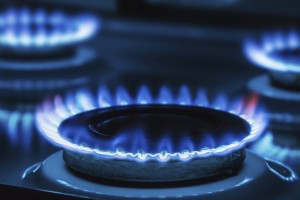Master Plumbers is urging the Government not to race into a ban on new gas connections, with even the Climate Change Commission pointing to the need for more investment in green gas alternatives.
In its final advice to the Government today, the Climate Change Commission continues to assume there will be no further fossil gas connections to homes and businesses in the future. However it also recognises the role green gas alternatives can play in reducing New Zealand’s emissions, and the need for more investment to understand their potential.
Master Plumbers, Gasfitters and Drainlayers NZ CEO Greg Wallace says the industry is 100 percent supportive of the move to carbon neutrality by 2050, but there needs to be a realistic plan to get there.

“Getting rid of new gas connections before fully developing green gas alternatives runs a real risk of hamstringing the development of new energy sources.
“What is needed is investment in green gas development, and urgent investment in the training and facilities for gasfitters to upskill in these alternative fuel technologies,” he says.
A gasfitting apprenticeship is five years, and new green gases will require new training and certification. In addition there is potential for the green hydrogen industry to need mechanical, engineering and gasfitting skillsets, depending on what it is being used to power, he says.
“There’s a real opportunity for New Zealand to benefit from green gas technology and achieve its carbon neutral goals. But we need to plan how to get there, invest and train our people to be ready to hit the ground running once the new technology is ready to roll out.”
Hydrogen, biogas and bioLPG are set to play a significant role in helping New Zealand reach its carbon neutrality target by 2050. A huge amount of research and development is already underway to ensure a smooth transition from natural gas and LPG over the coming years.
“We can expect to see green hydrogen blended with natural gas in our gas networks within the next 10 years, and it has the potential to completely replace natural gas for cooking, heating and hot water in our homes,” says Wallace.
Hydrogen fuel cell technology is also being developed as an alternative way to generate electricity to power homes and businesses.
“This has the added advantage of electricity storage, providing vital back-up as New Zealand’s electricity demand increases due to the massive growth in electric vehicles.
“Australia has already jumped on the opportunity, investing AU$20m in a new hydrogen training centre,” says Wallace. “A skilled workforce is the key to success in transitioning to zero-emission green hydrogen.
“By ensuring gasfitters have the skills to work with hydrogen and biofuels, New Zealand will be able to maximise the economic and environmental opportunities presented by these exciting new technologies.”
Read the Climate Change Commission’s final advice HERE. The Government now has until 31 December 2021 to set the first three emissions budgets out to 2035 and detail the policies it will use to achieve the budgets.


